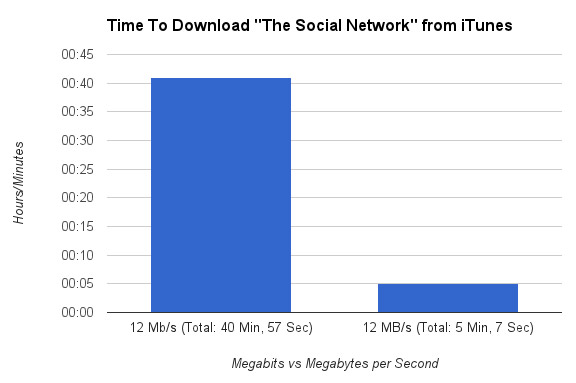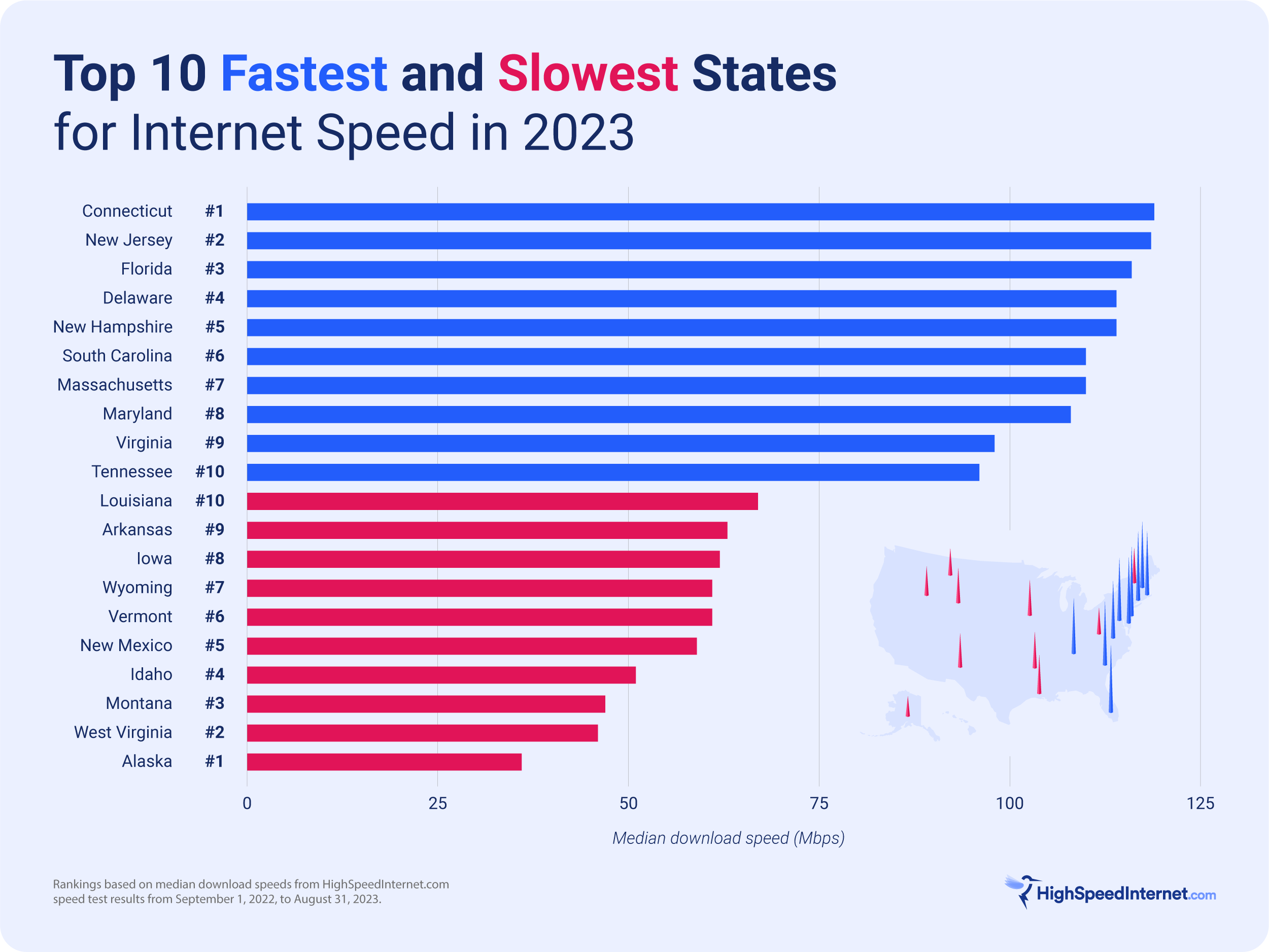The Future of Internet Speeds: Patterns in Megabits Per Second
The Future of Internet Speeds: Patterns in Megabits Per Second
Blog Article
Demystifying Megabits Per Second: A Guide to Picking the Right Internet Plan
Comprehending the idea of megabits per second (Mbps) is essential when selecting an internet plan that straightens with your certain requirements. With the wide range of plans available, just how do you recognize which one is ideal for you?
Comprehending Megabits Per Second

To comprehend the value of Mbps, it's important to recognize that it reflects the maximum data transfer offered for data transfer. For circumstances, a strategy using 100 Mbps permits the synchronised transmission of information at that rate, though actual speeds may vary due to network congestion, distance from the provider, and the performance of your home network equipment.
Furthermore, comprehending the distinction between megabits and megabytes is critical. While megabits represent the rate of information transfer, megabytes (1 byte = 8 little bits) determine the dimension of data. Downloading and install a 100 MB file on a 100 Mbps link in theory takes about 8 secs, disallowing any type of interruptions.
Inevitably, choosing an ideal Mbps ranking based upon your home's internet usage is vital for ensuring an acceptable online experience.
Just How Internet Rate Impacts Activities
Internet speed plays an essential role in determining just how efficiently individuals can engage in numerous on-line activities. Fundamental activities like surfing web sites or checking e-mails typically call for reduced rates, usually around 1-5 Mbps. Megabits Per Second.
Online gaming, another popular activity, also counts heavily on internet speed. A stable connection of a minimum of 15-25 Mbps can minimize and supply a competitive edge latency, which is vital for real-time interactions. Video conferencing applications, progressively important for remote work, advantage from rates of at the very least 3-8 Mbps for clear audio and video top quality.
In houses with numerous individuals, simultaneous activities can strain transmission capacity. In such instances, higher speeds-- 50 Mbps or even more-- are a good idea to fit diverse demands without a decrease in performance. Thus, recognizing the connection between internet speed and particular online tasks is important for selecting an appropriate plan that satisfies private or family needs effectively.
Different Kinds of Internet Strategies
Choosing an appropriate internet plan calls for an understanding of the different options readily available in the market. Access provider (ISPs) typically supply a number of types of strategies, each accommodating various individual needs and choices.
Broadband plans are one of the most common, giving high-speed internet using cable television or DSL links. These plans appropriate for households that involve in multiple online activities simultaneously, such as streaming, pc gaming, and video conferencing - Megabits Per Second. Fiber-optic plans, while much less widely readily available, offer the fastest rates and the very best performance, making them perfect for tech-savvy individuals or those with substantial bandwidth demands
Set cordless and satellite plans serve locations where traditional wired links are unstable or unavailable. While they can be valuable for rural customers, they usually feature greater latency and lower speeds contrasted to broadband alternatives.
Mobile hotspot intends permit users to access the internet via cellular networks, offering flexibility for those who require internet on the go. Last but not least, some ISPs supply tiered plans with varying rates and information caps, allowing clients to select a strategy that aligns with their usage patterns and spending plan. Understanding these different sorts of internet plans is critical in making an educated choice.
Determining Your Speed Demands
Frequently examining your speed requires is vital for picking a net plan that fits your way of living. Comprehending the needs of your household or service can assist in picking an ideal package.
Following, think about the tasks you take part in online. Fundamental jobs such as searching and emailing commonly require lower rates, around 1-5 Mbps. However, streaming video clips in high definition, on the internet gaming, or big file downloads might necessitate rates upwards of 25 Mbps or even more.
Additionally, consider the number of individuals. Megabits Per Second. A family with several people streaming content or video gaming at the exact same time will need substantially a lot more transmission capacity than a single-user circumstance
Finally, bear in mind that internet rates can be affected by variables such as network congestion and the quality of your router. By extensively evaluating your speed requires, you can make an educated decision, ensuring that your internet plan straightens with your daily use and future needs.
Tips for Selecting the Right Plan
Selecting the right internet plan calls for cautious factor to consider of a number of vital aspects to guarantee it meets your demands. Evaluate your usage patterns-- whether you are streaming, video gaming, or working from look at this now home-- since these activities demand different bandwidth degrees. Usually, families with several users or high-bandwidth activities will profit from higher-speed strategies.
Next, examine the information caps associated with numerous strategies. Some suppliers enforce limitations on information use, which can lead to additional costs or strangled speeds upon going beyond those restrictions. Selecting an unlimited information plan might be beneficial for heavy individuals.
Furthermore, take into consideration the dependability of the service supplier. Study customer evaluations and ask about the service provider's uptime and client service performance. A cheaper plan may not be a bargain if it lacks reliability or assistance.
Finally, review marketing offers and agreement terms. While initial prices can be attractive, understand the lasting costs and whether the plan needs a prolonged agreement. By considering these aspects, important site you can make an informed choice that lines up with your internet requirements and budget plan, ensuring you pick the most appropriate plan for your household.

Conclusion
In final thought, comprehending megabits per second (Mbps) is crucial for choosing a proper internet plan. Inevitably, choosing a strategy with sufficient transmission capacity ensures fulfillment and effectiveness in navigating the electronic landscape.
Recognizing the concept of megabits per second (Mbps) is essential when picking a web plan that lines up with your particular demands. Hence, recognizing the relationship in between internet speed and specific online tasks is important for selecting a proper plan that fulfills specific or family needs effectively.
Mobile hotspot prepares allow users to access the internet via mobile networks, supplying flexibility for those that call for internet on the go. Some ISPs offer tiered strategies with differing speeds and data caps, enabling here are the findings clients to pick a plan that straightens with their usage patterns and budget.Often evaluating your rate requires is crucial for choosing a net plan that fits your lifestyle.
Report this page